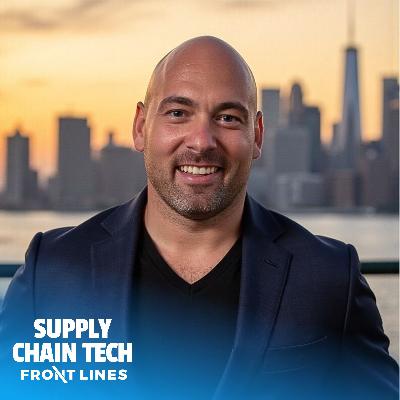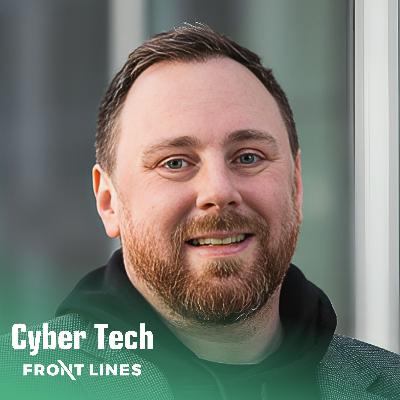How Keye drives word-of-mouth in the relationship-driven PE industry through vertical focus | Rohan Parikh
Description
Keye helps private equity investors accelerate deal evaluation through AI-powered quantitative analysis. In a recent episode of Category Visionaries, I sat down with Rohan Parikh, Co-Founder and CEO of Keye, to explore how his team bridges the gap between AI capabilities and the 100% accuracy requirements of financial due diligence—enabling PE firms to say no to deals earlier and focus resources on the right opportunities.
Topics Discussed:
- Why ChatGPT-style search and summarization tools fail in PE workflows—summaries don't drive investment decisions
- The technical challenge of achieving 100% deterministic accuracy while maintaining AI contextualization capabilities
- How market timing created unexpected GTM momentum: PE operating partners watching portfolio companies transform with AI became receptive to internal tooling
- Persona-specific cold email strategies that demonstrate workflow understanding rather than biographical personalization
- Design partner economics in conservative industries: accepting <1% hit rates to find firms willing to bet $10-20K on early-stage solutions
- Building multichannel GTM in a relationship-driven industry where brand recognition signals data security capability
GTM Lessons For B2B Founders:
- Identify where AI creates workflow compression, not just automation: Most tools attempted to replicate ChatGPT for finance—search, summarization, document Q&A. Rohan rejected this approach because "summaries don't lead to decision making" in PE. Instead, Keye focused on the quantitative analysis workflow: data scrubbing, creating multiple views, combining datasets, and extracting insights about customer cohort performance and business health. The North Star wasn't faster summaries—it was enabling investors to evaluate more deals with the same selectivity. B2B founders should map where their technology collapses decision timelines rather than simply automating existing tasks.
- Engineer for domain-specific accuracy thresholds: Financial analysis operates under "unless it's 100%, it is 100% wrong" constraints. When AI models delivered 99% accuracy on mathematical operations, Rohan's team built a hybrid architecture—completely deterministic calculations with AI layered on for contextualization. This wasn't a product compromise; it was recognizing that PE professionals "have gone through the same process over 50 years" and won't trust systems that occasionally miscalculate. B2B founders in regulated or high-stakes domains must architect for their industry's reliability requirements, not force general-purpose AI into unsuitable applications.
- Exploit second-order market timing effects: Keye launched when PE firms were experiencing technology shifts through their portfolio companies—operating partners were "very wary of what AI has brought into the picture" because they witnessed it firsthand in their investments. This created a unique moment where "both technology has been brought in, but at the same time the willingness to look at technology has also drastically improved." Five years earlier, this GTM motion would have failed. B2B founders should identify when their buyers are experiencing transformation in adjacent contexts that make them receptive to internal change.
- Structure outbound around workflow stratification: Keye's cold emails work because they target specific pain by role and fund structure—associates crunching numbers, VPs synthesizing high-level details, principals managing relationships across deal teams. Some funds operate through committees; others give associates autonomy to select tools. Rohan emphasized: "Understanding the demographic and how funds are operating—what is top of mind for the personas inside—go back to your startup fundamentals: what is the pain point you're trying to solve for each persona?" B2B founders should map their solution's impact across organizational layers and fund dynamics, not just job titles.
- Calibrate for enterprise hit rates in trusted networks: Pre-YC, Keye converted one design partner per 100 outreach attempts. Three paid customers at $10-20K each before building significant product. Rohan's perspective: "for us it's $10, $15, $20,000—who cares?" for firms willing to bet on a passionate team. The acceptance criteria wasn't perfect product-market fit—it was demonstrating deep problem understanding to prospects who felt the pain acutely. B2B founders selling into relationship-driven industries should expect extreme rejection rates and focus on finding the minority of prospects willing to take calculated risks on teams who understand their world.
//
Sponsors:
Front Lines — We help B2B tech companies launch, manage, and grow podcasts that drive demand, awareness, and thought leadership. www.FrontLines.io
The Global Talent Co. — We help tech startups find, vet, hire, pay, and retain amazing marketing talent that costs 50-70% less than the US & Europe. www.GlobalTalent.co
//
Don't Miss: New Podcast Series — How I Hire
Senior GTM leaders share the tactical hiring frameworks they use to build winning revenue teams. Hosted by Andy Mowat, who scaled 4 unicorns from $10M to $100M+ ARR and launched Whispered to help executives find their next role.
Subscribe here: https://open.spotify.com/show/53yCHlPfLSMFimtv0riPyM
























